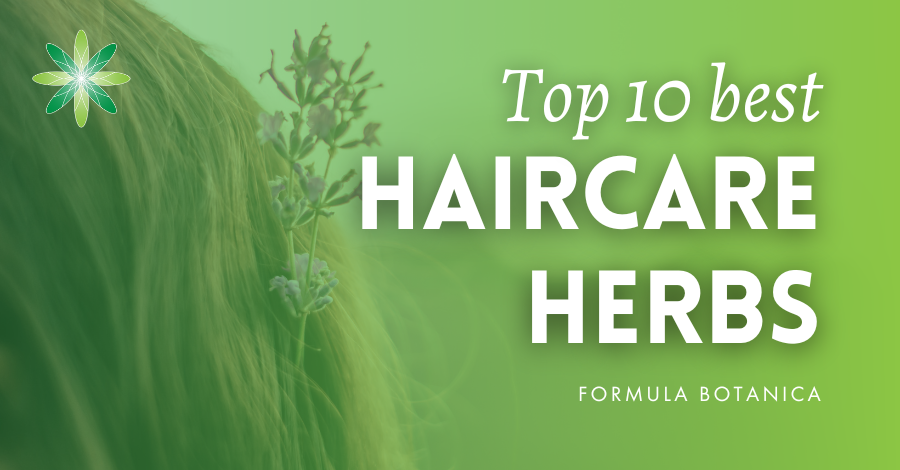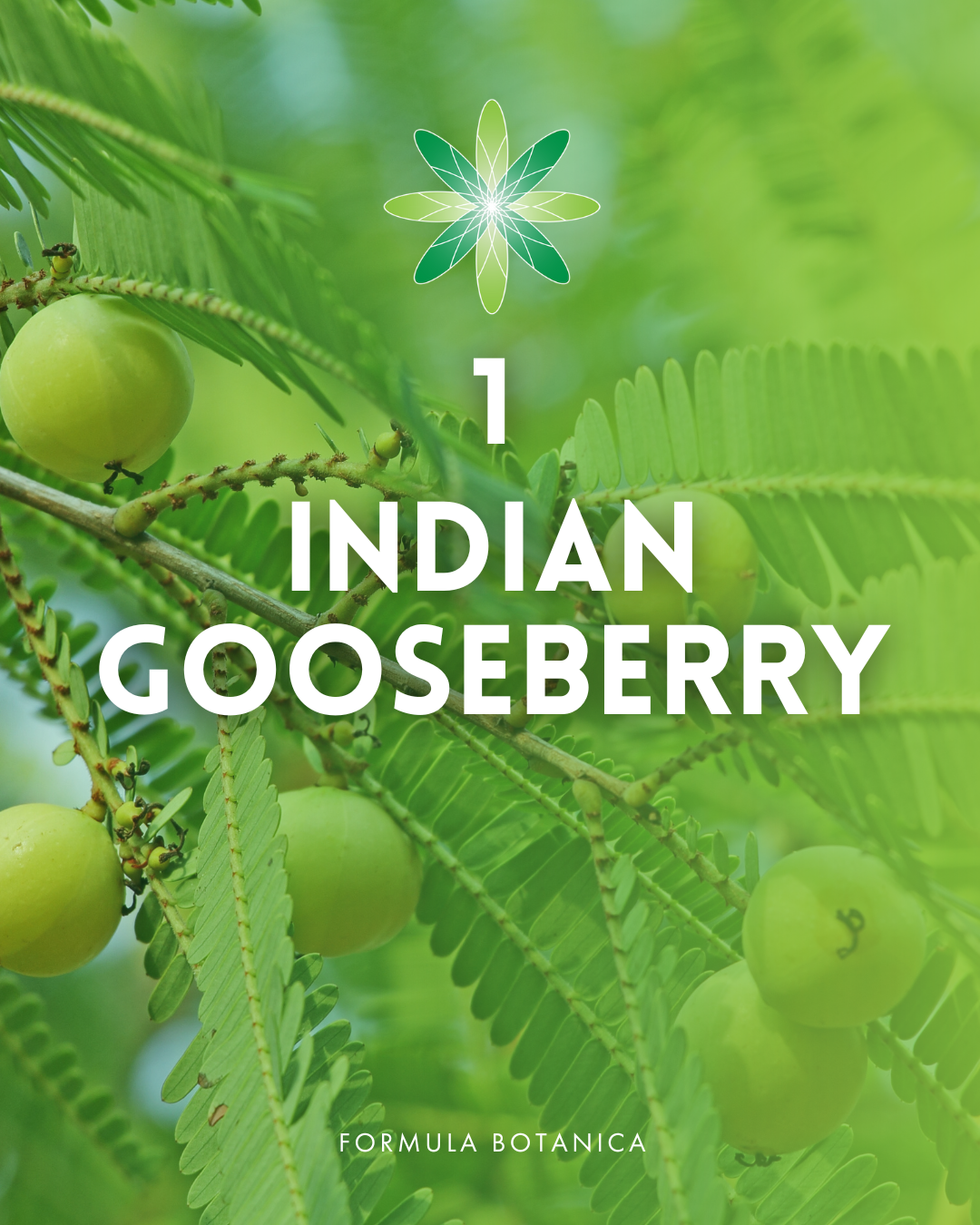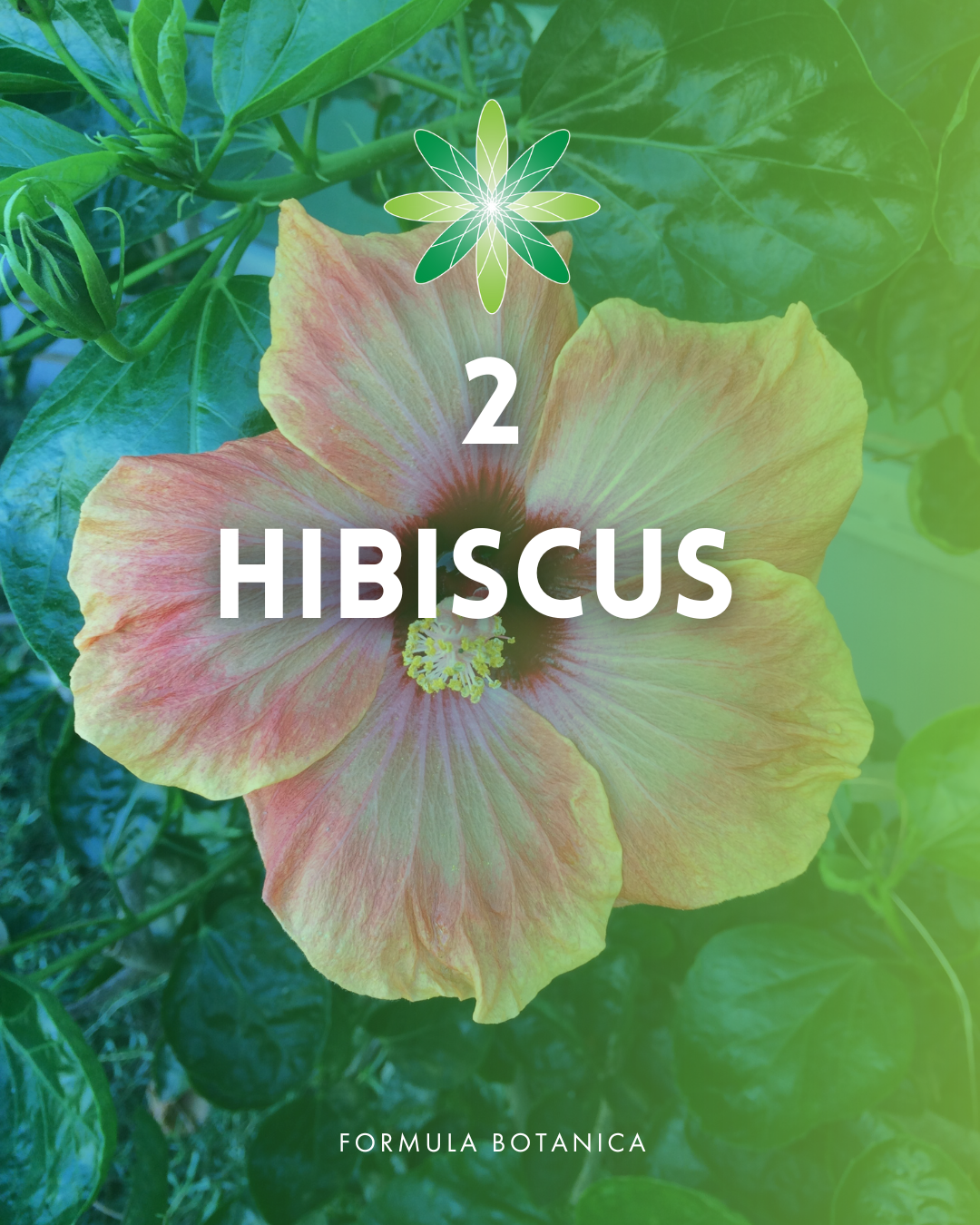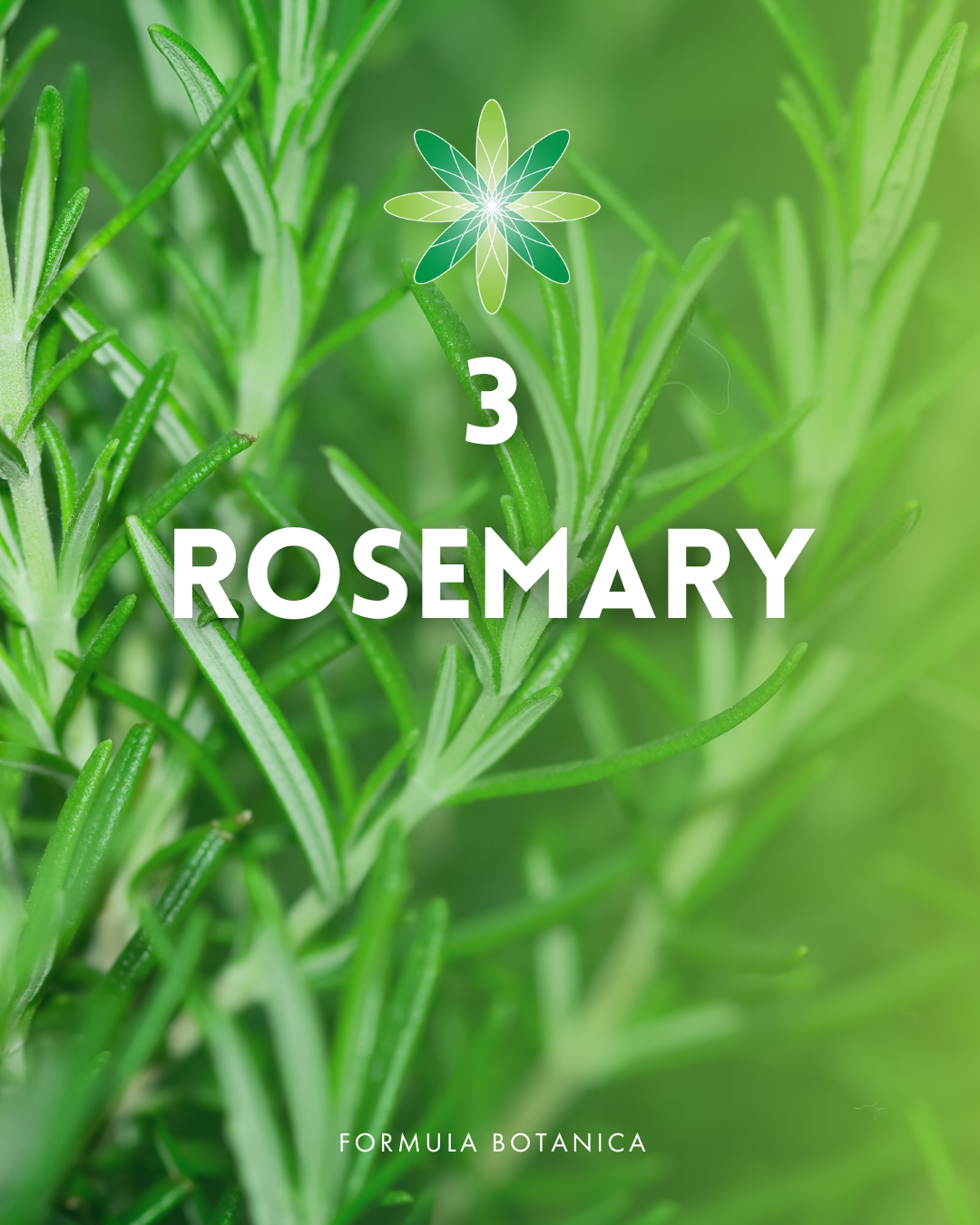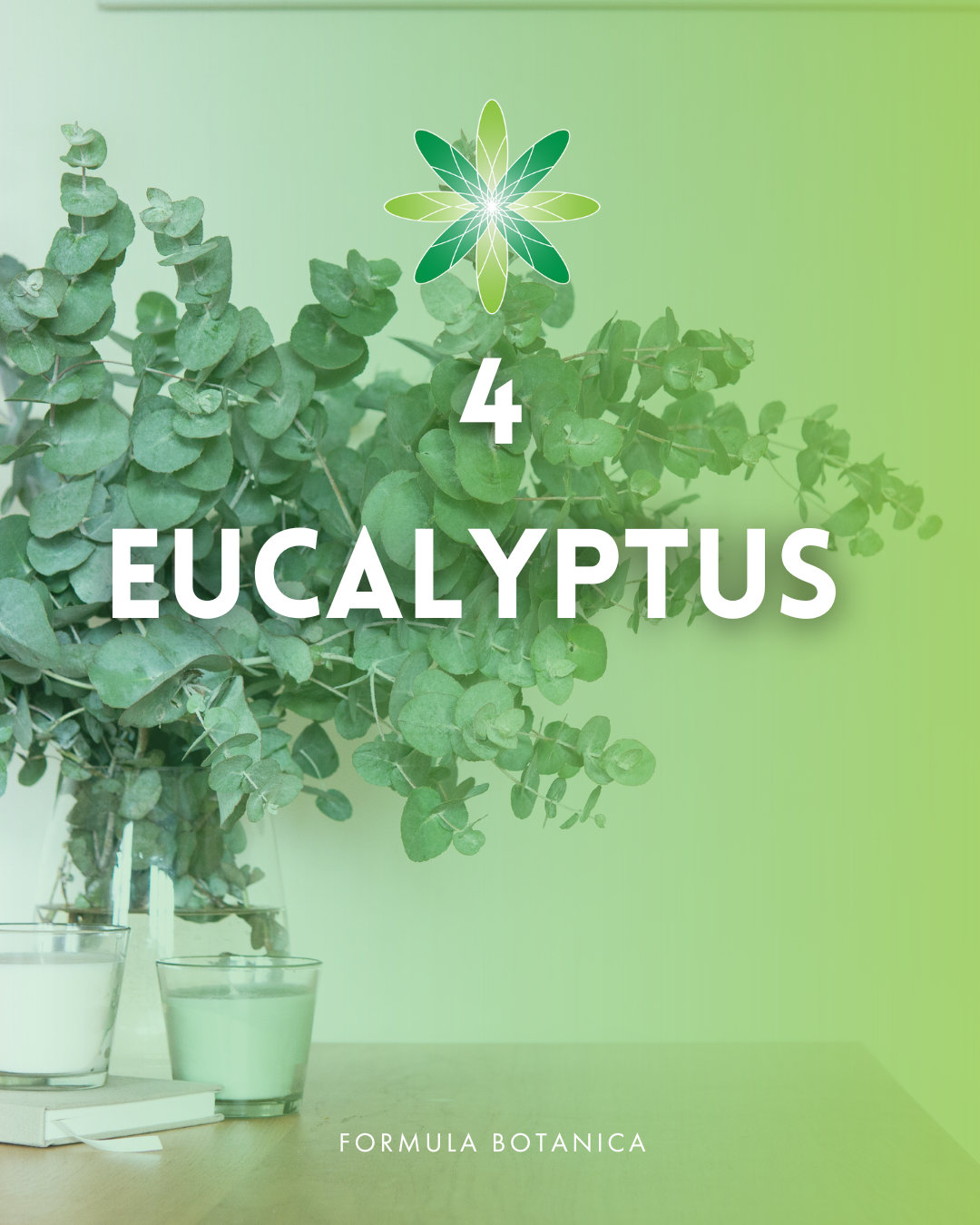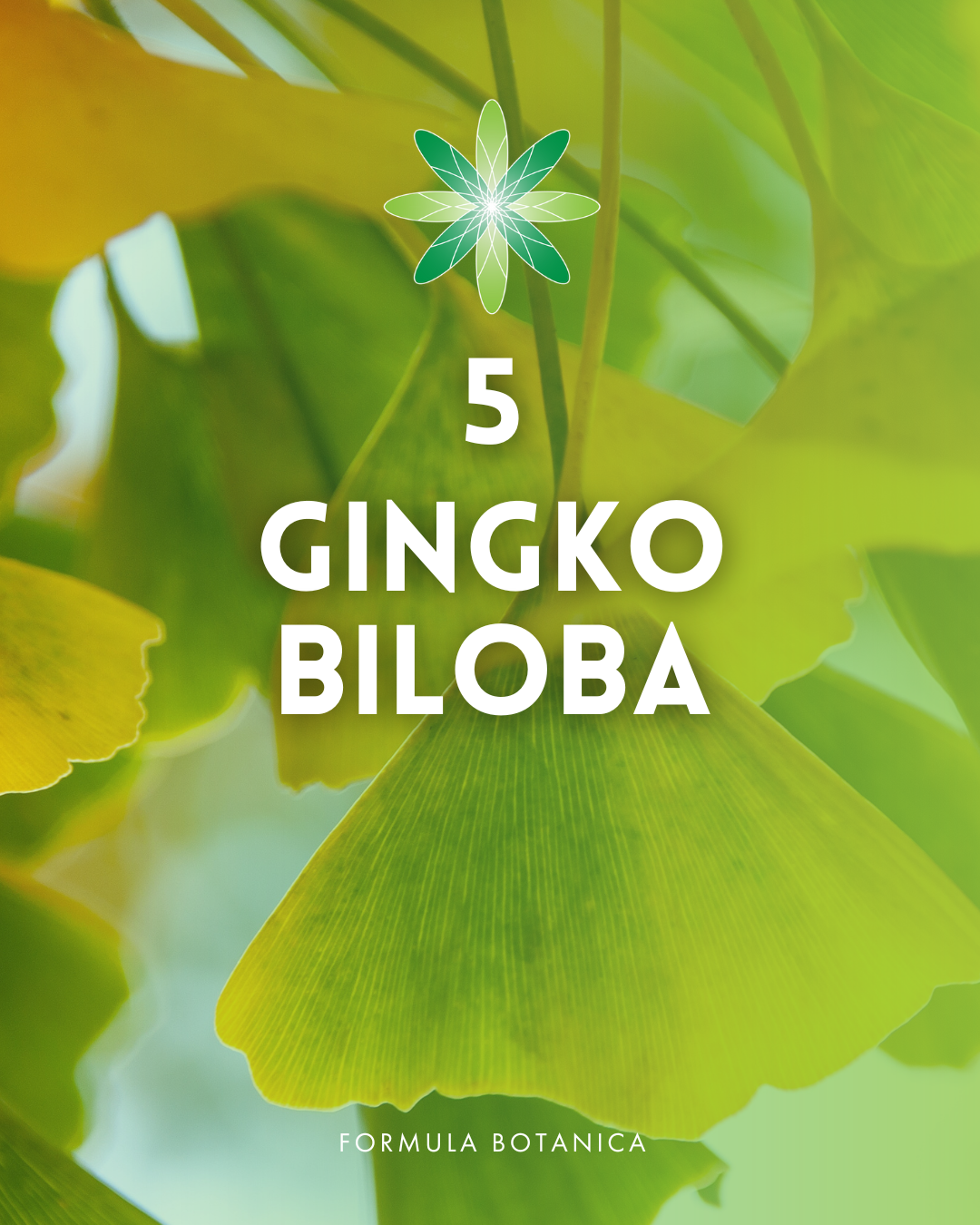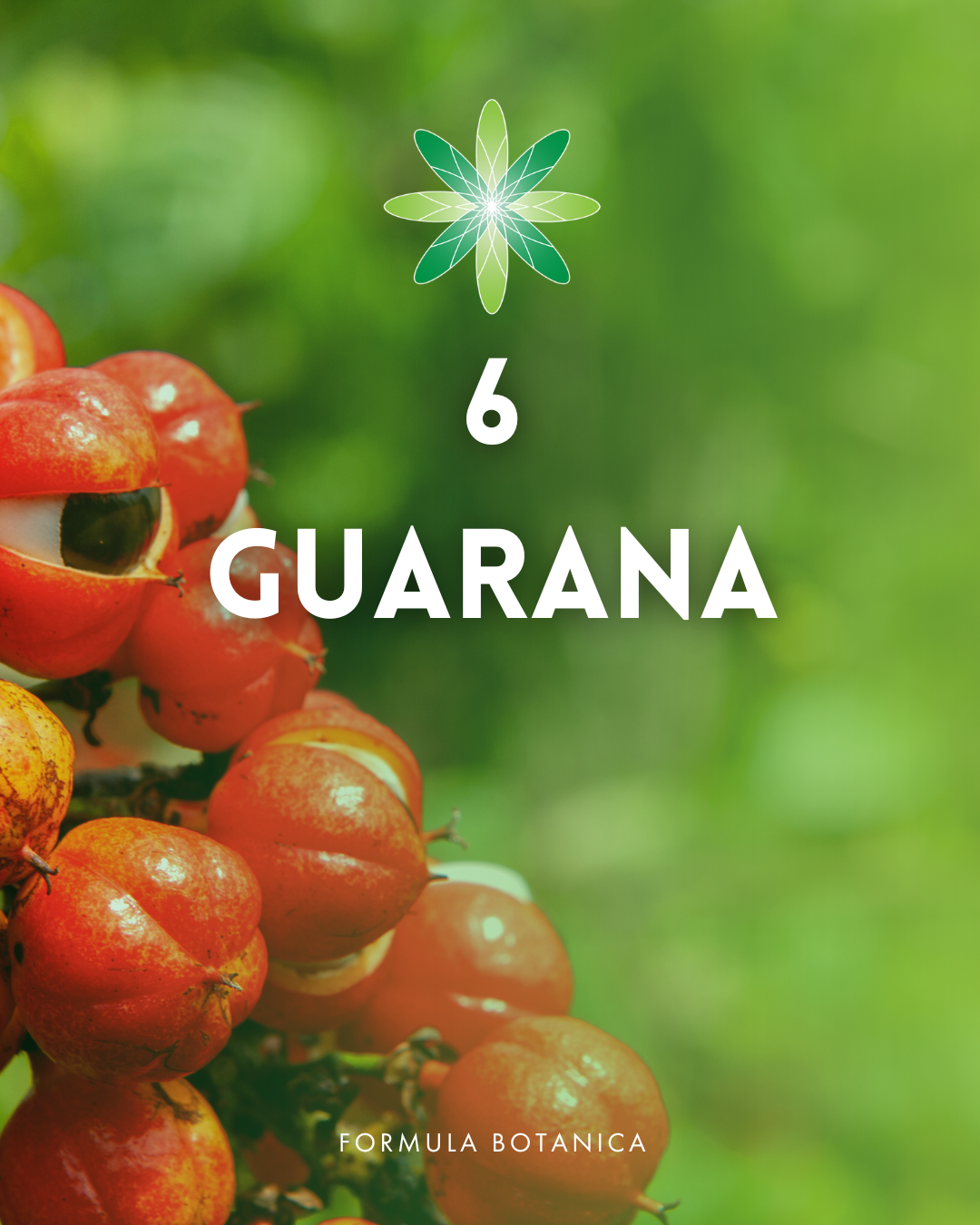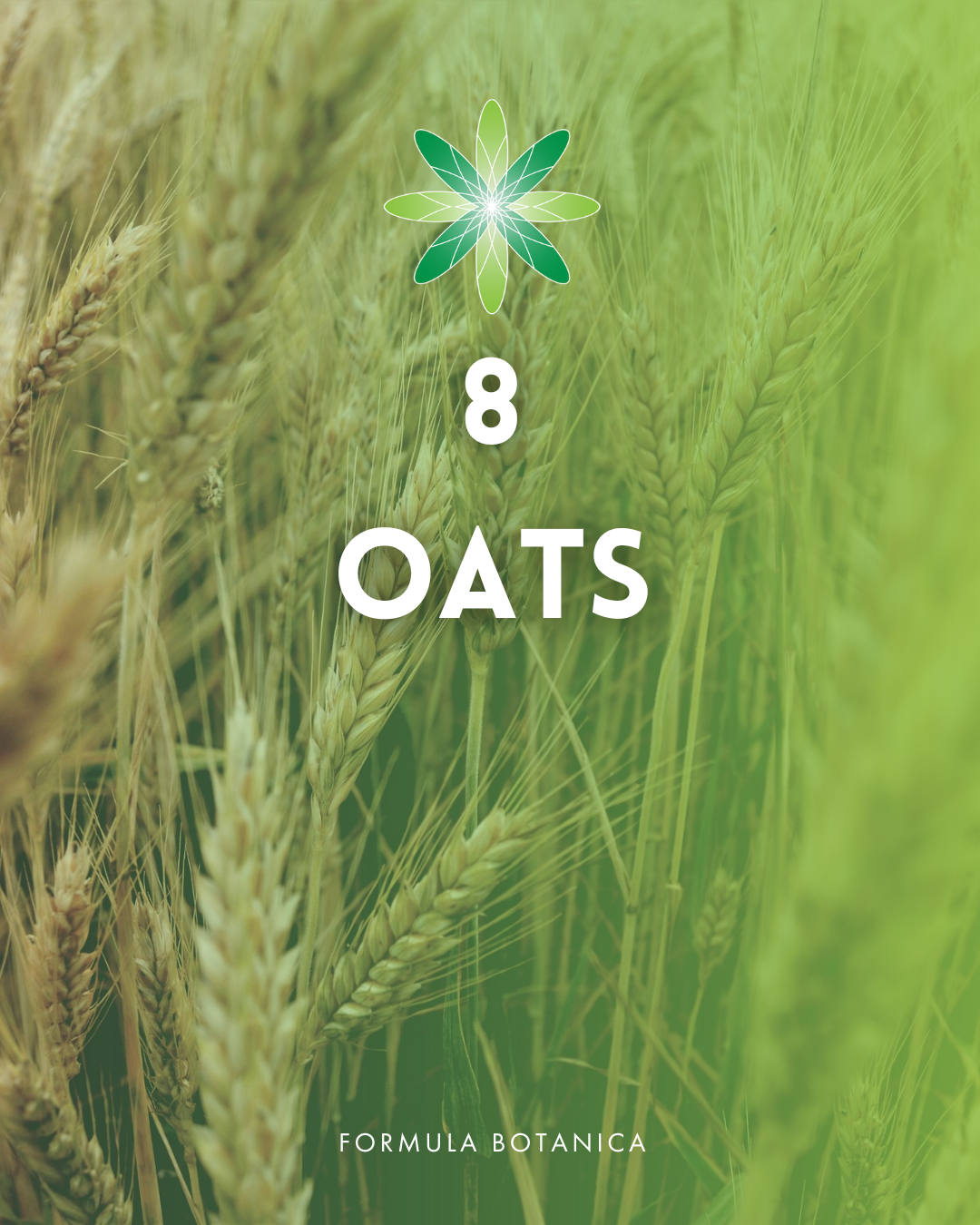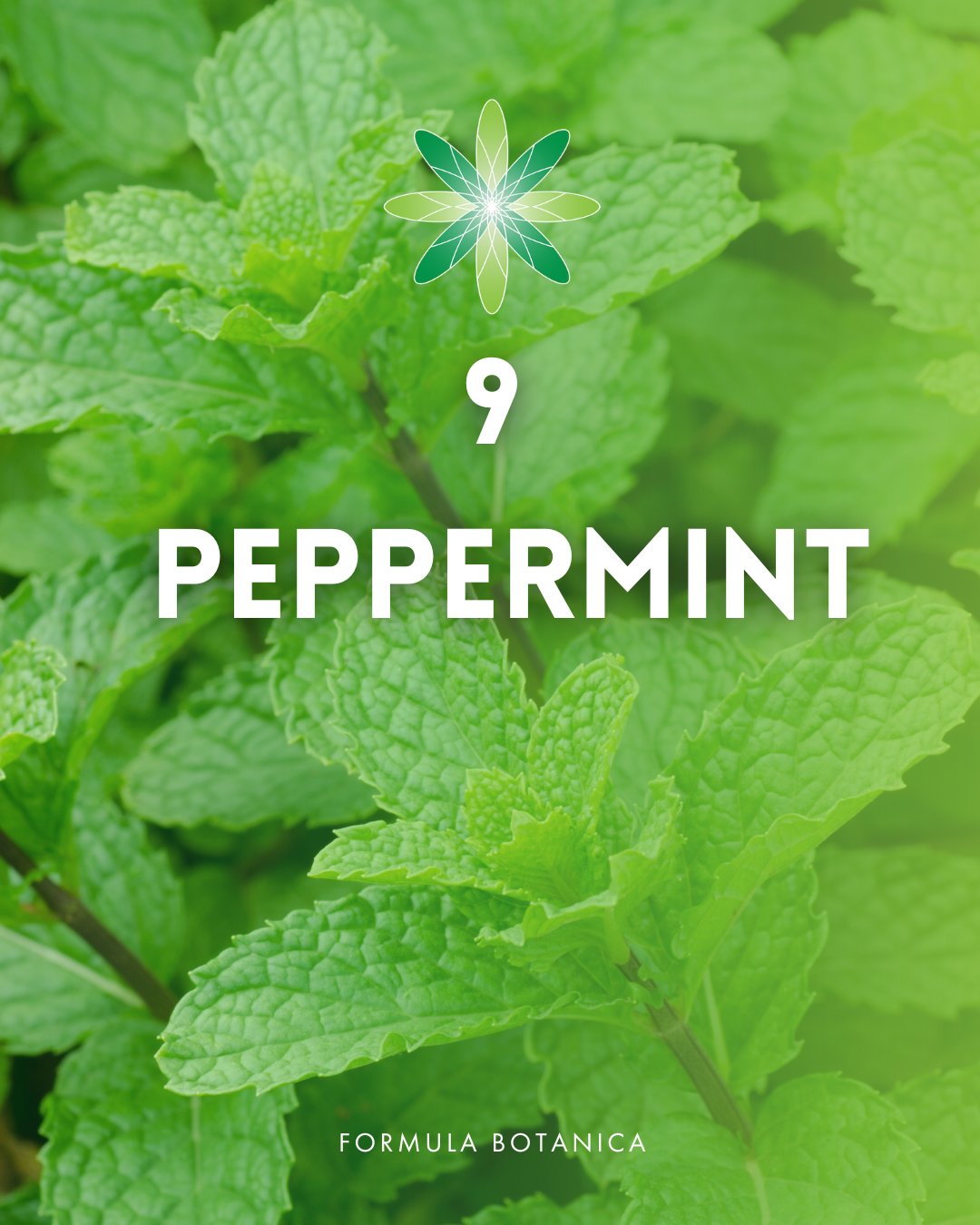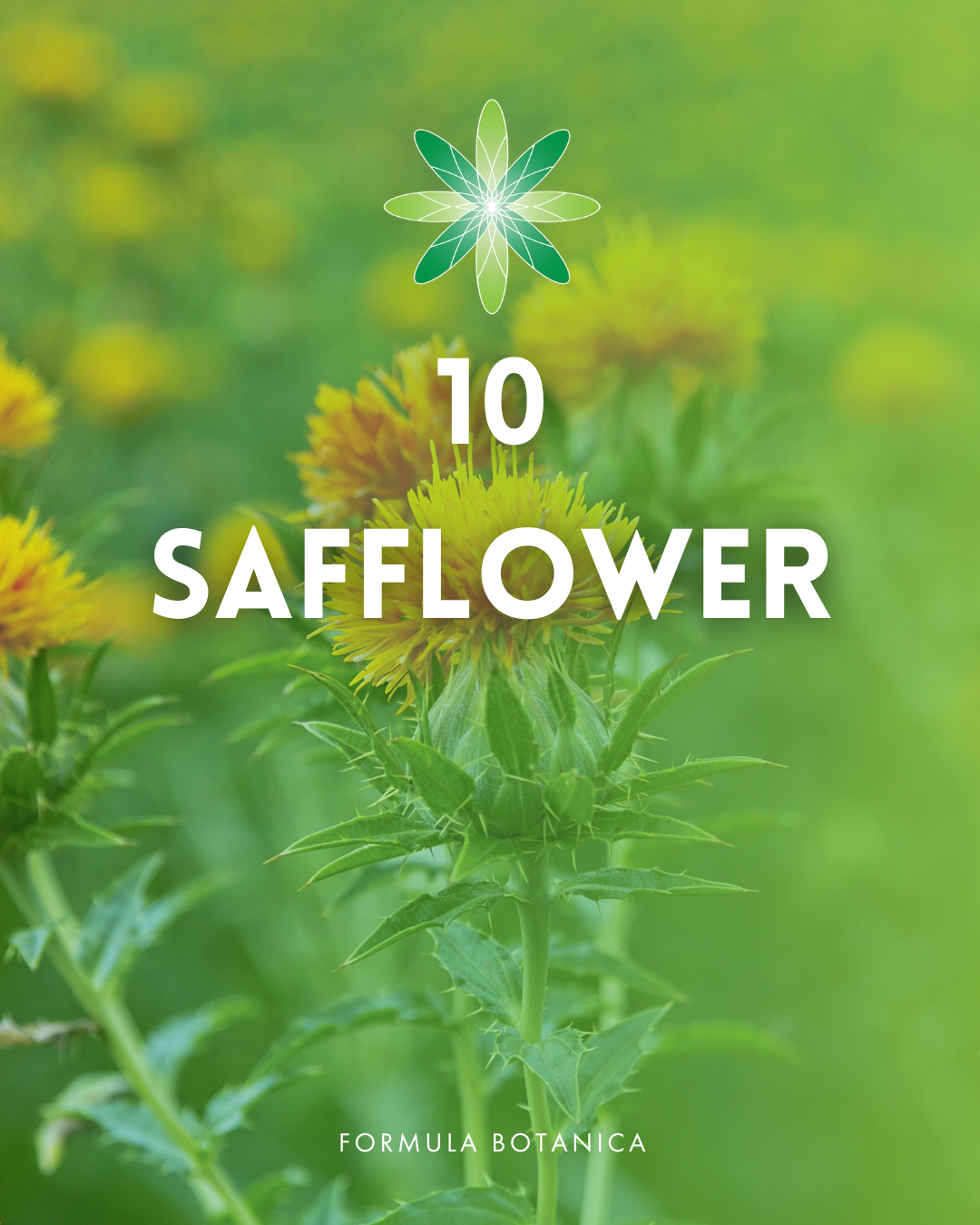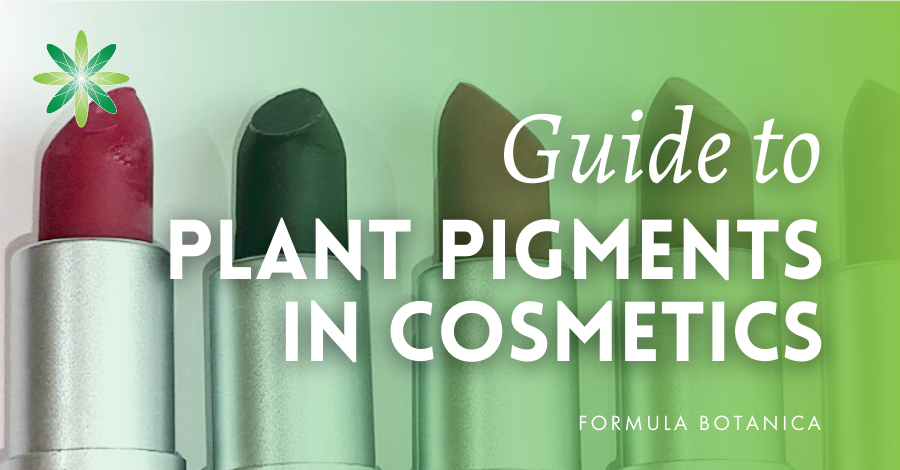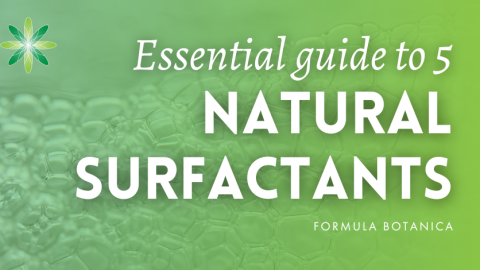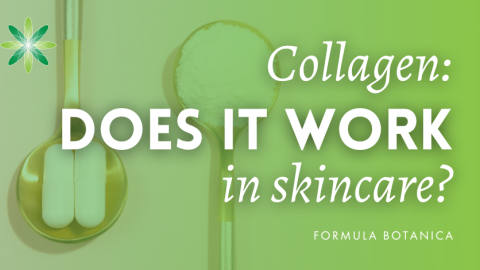Updated: 19.08.25
Have you ever added herbs to your haircare formulations? If not, you’re seriously missing out.
Botanicals have been used for thousands of years to promote healthy and shiny hair, and they are still used in haircare formulations to this day in the form of oils, powders, glycerites, macerates, hydrosols, and more. In fact, herbs are trendier than ever, thanks to a growing demand for botanical beauty and a renewed interest in traditional plant-powered remedies.
At Formula Botanica, this doesn’t surprise us at all. After all, herbs are rich in vitamins, phytoactives, essential oils, and other plant compounds that are beneficial for a healthy scalp and hair – and science is only now beginning to fully explore their potential.
In today’s post, we wanted to share some of our favourite haircare herbs with you.
Top 10 best haircare herbs for your natural formulations
Here are the top 10 best haircare herbs you can use in your natural formulations (you can thank us later).
1. Indian gooseberry
Also known as Amla, this traditional Indian herb is rich in vitamin C, tannins, and minerals like phosphorus, iron, and calcium.
The fixed oil extracted from Indian gooseberry is reputed for strengthening hair and promoting growth. Meanwhile, the dried fruit is valued for its cleansing properties and has long been used as a key ingredient in traditional shampoos and hair oils to support scalp hygiene.
Try adding Indian gooseberry to your hair oils, shampoos, conditioners, or hair masks.
2. Hibiscus
Up next, hibiscus (Hibiscus rosa-sinensis) is a tropical shrub widely grown as an ornamental plant, with flowers in a range of different colours. In cosmetics and medicine, the red variety is most commonly used.
Researchers have observed that hibiscus leaves and flowers can promote hair growth (i). Traditionally, hibiscus leaves have also been valued for their anti-greying properties.
Try adding hibiscus to your hair rinses, shampoos, conditioners, or hair masks.
3. Rosemary
Rosemary has long been used as a rinse in folk medicine to stimulate hair growth.
Its key active compounds include caffeic acid and rosmarinic acid, which are both powerful antioxidants.
Rosmarinic acid, in particular, supports blood circulation in the scalp, encouraging hair growth (ii, iii). Interested in learning more about rosemary oil? Then you’ll like this post:
Rosemary is frequently added to shampoos and conditioners to address scalp issues such as early baldness and dandruff.
Try adding rosemary to your shampoos, conditioners, scalp tonics, hair oils, or serums. You can also recreate the viral TikTok rosemary oil:
4. Eucalyptus
Eucalyptus extract has been found to increase both hair elasticity and shine.
One study by Mamada et al. (2012) asked testers to use a scalp lotion which contained eucalyptus extract on a long-term basis. All testers recognised an improvement in hair lustre and bounce in the root part of the hair. Eucalyptus is also often featured in ‘root awakening’ haircare products.
Additionally, research has demonstrated eucalyptus’ antifungal activity against Malassezia furfur, the fungus responsible for dandruff, making it a valuable ingredient in anti-dandruff formulations. Try adding eucalyptus to your scalp lotions, shampoos, hair tonics, or leave-in treatments.
5. Gingko biloba
Ginkgo biloba is thought to stimulate hair growth. When applied to the skin, the plant’s extract appears to promote microcirculation, which is thought to be the main driver in stimulating hair growth (iv).
The plant also has anti-inflammatory, antioxidant and antibacterial benefits, which may also play a role. Try adding ginkgo biloba to your scalp serums, hair oils, conditioners, or masks.
6. Guarana
Guarana is well-known for its high caffeine content, which makes it effective in stimulating hair growth. Caffeine is a xanthine, a chemical compound that improves the drainage of dermal tissues.
According to a 2014 British study by Fischer et al. (v), caffeine stimulates the hair shaft and helps it grow faster by blocking the effects of DHT, a chemical known to damage follicles. Researchers found that caffeine application enhanced hair shaft elongation, prolonged anagen duration and stimulated hair matrix keratinocyte proliferation.
Try adding guarana to your hair serums, scalp tonics, shampoos, or leave-in sprays.
7. Lemongrass
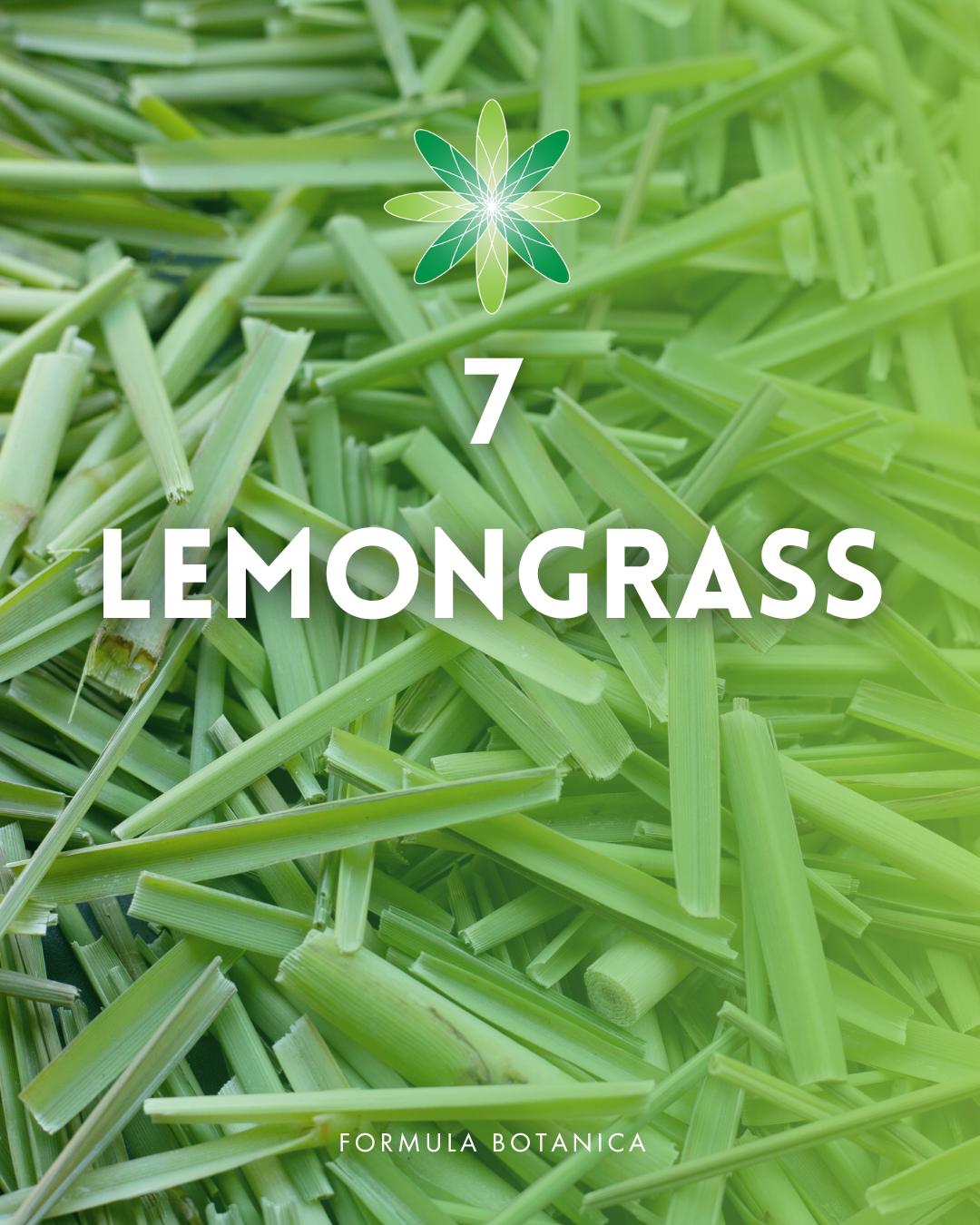
A study by Wuthi-Udomlert et al. (vi) demonstrated the antifungal properties of lemongrass essential oil against Malassezia furfur, the yeast commonly linked to dandruff. When added at 2% concentration to shampoo, lemongrass oil showed effective fungicidal activity, making it a great natural choice for dandruff control.
Try adding lemongrass to your shampoos, conditioners, scalp scrubs, or anti-dandruff treatments (but be careful not to make any medical claims!).
8. Oats
Hydrolysed oat protein is prized in haircare because its small molecules can penetrate the hair shaft, forming a protective film on both hair and skin.
Clinical testing (vii) found that hair treated with oat protein became stronger and more elastic than untreated hair. Try adding oat oil or extract to your conditioners, masks, shampoos, or leave-in treatments.
9. Peppermint
Peppermint is a plant native to Europe and has been used in cosmetic formulations as a fragrance component and skin conditioning agent. It is also an amazing haircare herb!
Researchers have found that peppermint essential oil shows potential for hair growth effects, potentially leading to an increase in dermal thickness, follicle number and follicle depth (viii). Try adding peppermint to your scalp sprays, hair oils, shampoos, or conditioners.
10. Safflower
Last but not least, we have safflower. Safflower florets have traditionally been used to encourage hair growth.
In one study (ix), researchers found that the safflower extract significantly stimulated hair growth-promoting genes, including vascular endothelial growth factor and keratinocyte growth factor.
The extract also suppressed the expression of a hair loss-related gene. The study concluded that safflower can be used as a potential hair growth-promoting agent. Try adding safflower to your hair oils, scalp serums, shampoos, or conditioners.
Please note that no article on haircare herbs would be complete without this small, but important, caveat. Most of these scientific studies were undertaken on animals. In virtually all cases where animals were used, the studies involved shaving the hair of rats or mice, and then applying herbal extracts to their skin to monitor re-growth.
Formula Botanica views this research as unnecessary and cruel, and we sincerely wish that there were more data available from clinical testing of haircare botanicals on human beings. We are sharing this information because we want to show how amazing plants can be for the hair, but we strongly condemn the way the information was obtained.
Conclusion
We hope you enjoyed this article and found it useful! Whether you’re targeting hair growth, dandruff, breakage, or scalp irritation, there’s a herb that can help.
Each of the ten herbs we’ve highlighted offers unique benefits, and they’re also easy to incorporate into a wide range of natural formulations, from shampoos and conditioners to serums, oils, and masks.
We hope you’ll try them and let us know which is your favourite in the comments section below! If you’re new to haircare formulating, you might also enjoy this article: How to make natural haircare products.
Want to learn more about formulating with herbs and creating botanical haircare formulations? Then sign up for our award-winning online Diploma in Organic Haircare Formulation where you’ll learn how to create 25+ natural haircare formulations and become a certified organic haircare formulator.
FAQ
- How can I add herbs to my haircare formulation?
Most botanicals are available as pre-made extracts, such as oils, glycerites, hydrosols, or powdered extracts, that can be added directly to your formula. Your ingredient supplier will typically provide documentation specifying the recommended usage rate, the best stage of the formulation to add it, and any special handling requirements. Always follow these guidelines to ensure you make the best of your ingredients’ beneficial properties.
- What herbs are best for hair growth?
Botanical, and especially herbal formulations, have long been treasured haircare treatments, both in centuries past and in today’s global haircare industry.
The best herbs to use for hair growth are those that stimulate the scalp to increase blood circulation in the small capillaries around the hair follicle. Common herbs known for their ability to promote hair growth include rosemary, gingko biloba, safflower, hibiscus, and peppermint.
- What herbs stop hair loss?
Rosemary, safflower and eucalyptus all have properties which help guard against hair loss by stimulating or awakening the hair follicle and by helping increase blood circulation in the scalp.
Rosemary is a herb traditionally used in hair preparations. It is used against various hair and scalp disorders, such as early baldness or dandruff and is frequently used as a component of shampoos and conditioners.
- What ingredients are good for hair growth?
Herbs and botanical extracts that have been researched and demonstrated to have particular results in encouraging healthy hair growth include rosemary, safflower, hydrolysed oat protein, hibiscus, ginkgo biloba, eucalyptus, peppermint, guarana, and Indian Gooseberry.
References & further reading
(i) Adhirajan, et al., 2003. In vivo and in vitro evaluation of hair growth potential of Hibiscus rosa-sinensis Linn. Journal of Ethnopharmacology 88 (2003) 235–239.
(ii) Aruoma, et al., 1996. An evaluation of the antioxidant and antiviral action of extracts of rosemary and Provençal herbs. Food Chem Toxicol 34: 499-456.
(iii) Murata et al., 2013. Promotion of hair growth by Rosmarinus officinalis leaf extract. Phytother Res. 2013 Feb; 27(2): 212-7.
(iv) Kobayashi, et al., 1993. Effect of leaves of Ginkgo biloba on hair regrowth in C3H strain mice. Yakugaku Zasshi 113: 718-24.
(v) Fischer et al., 2014. Differential effects of caffeine on hair shaft elongation, matrix and outer root sheath keratinocyte proliferation, and transforming growth factor-β2/insulin-like growth factor-1-mediated regulation of the hair cycle in male and female human hair follicles in vitro. Br. J. Dermatol. 171(5): 1031-43.
(vi) Wuthi-Udomlert, et al., 2011. Inhibitory effect of formulated lemongrass shampoo on Malassezia furfur: a yeast associated with dandruff. Southeast Asian J Trop Med Public Health. 2011 Mar;42(2): 363-9.
(vii) Wu, J. 2009. Cosmetic aspects of scalp and hair care in dermatology. Advances in the science of natural hair care. Skin & Ageing Supplement.
(viii) Oh et al., 2014. Peppermint oil promotes hair growth without toxic signs. Toxicol Res. 2014 Dec; 30(4): 297-304
(ix) Junlatat, J. & Sripanidkulchai, B. 2014. Hair growth-promoting effect of Carthamus tinctorius floret extract. Phytother Res. 2014 Jul; 28(7): 1030-6.
(x) Purwal et al., 2008. Development and evaluation of herbal formulations for hair growth. E-Journal of Chemistry. 5(1): 34-38.
(xi) Yu et al, 2017. Preclinical and clinical studies demonstrate that the proprietary herbal extract DA-5512 effectively stimulates hair growth and promotes hair health. Evid Based Complement Alternat Med. 2017; 2017: 4395638.
FREE TRAINING
Learn how to become an
Organic Skincare Formulator
FREE TRAINING
How to become an
Organic Skincare Entrepreneur
FREE TRAINING
How to become an
Organic Skincare Entrepreneur
Leave us a comment
Lorraine Dallmeier is a Biologist, Chartered Environmentalist and the CEO of Formula Botanica, the award-winning online organic cosmetic science school. Read more about Lorraine and the Formula Botanica Team.

